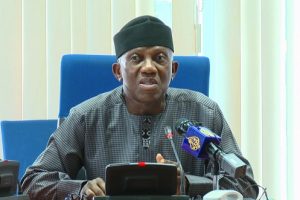
BY ADDISALEM MULAT
Reforming policies is one of the daunting tasks the country finds itself on the heels of the ongoing reform driven by public demands and overseen by the new leadership.
From Charity’s law, draconian anti-terrorism legislation to the mass media law, Ethiopia is going back to the drawing board to rewrite or draft new bills to fast-track socio-economic and political developments in the country. At the top of the policy reform menu are the long-serving Ethiopian Foreign policy and strategy documents.
The existing document despite its strengths falls short of current national, continental, and global events. While on the subject, the formation of South Sudan as the 55th country of Africa and the Ethio-Eritrea peace rapprochement have been some of the recent developments that the document fail to give recognition or say something about. It was this and other rationales that led to the preparation of new foreign policy by the new leadership.
Now a new draft bill is in the pipeline and is on the table of legislators and other stakeholders for discussion and scrutiny. Recently, The Ministry of Foreign Affairs of Ethiopia has concluded a three-day Seminar it has been giving to the Foreign Relations and Peace Affairs standing committee of the House of Peoples Representatives of Ethiopia.
This training was considered as an imperative move as one of the sharp criticisms drawn against lawmakers was their knowledge in national and international policy matters. Some experts also lodge complaint on the house as being rubberstamp or not competent enough in terms of voicing the public’s concern about certain policies and strategies. Their argument stems from the lack of hot debates in different sessions of the houses.
“We strongly believe that parliamentarians should know more about the theory and practice of parliamentary diplomacy, public diplomacy, and other related aspects beyond a shadow of a doubt. Strictly speaking, parliamentary diplomacy is regarded as part of public diplomacy,” said, Negeri Lencho (Ph.D.), Foreign Relations and Peace Affairs Standing Committee Chairperson Speaking exclusively to The Ethiopian Herald lately on the above concern and the training.
But, Negeri argues that it is impossible to generalize that members of the parliament are not informed ones. One can speak about capacity in relative terms given that generalization cannot help. What is more, there are well-informed members of parliament who know the nitty-gritty of the whole thing.
People, in general, may perceive that members of parliament are not informed ones but there are members of parliament who are very well informed mainly because of their own attempt to get information from different sources.
The intended target of the seminar was to acquaint participants with the basics of the Foreign Policy of Ethiopia, the international rules governing relationships amid countries, the duties of various departments in the Ministry, and things of that sort.
“The intended target of the seminar was to familiarize participants with the nuts and bolts of the Foreign Policy of Ethiopia, international rules governing relationships amid countries, the duties of various departments in the Ministry and things of that sort. I would venture to say, the training is the first of its kind and the most successful one. I dare to say, we managed to attain the envisioned target.”
He elucidated that the training touched upon parliamentary diplomacy, the different types of foreign diplomacy, foreign policy issues, foreign relations issues, and whatnot.
“On top of that, issues related to a wide range of principles in foreign relations which govern diplomatic relations with other countries and the ten-year strategic plan of the Ministry of Foreign Affairs incorporated in the training.
Although we do not have clear data concerning who are well informed and not well informed, most of the parliament members are well-informed ones. “It can be concluded that the training plays a significant role from this perspective,” Negri said adding that, the MPs are well informed about the topics we have selected for the training which are already mentioned.
They should be updated. “We cannot conclude that every Tom, Dick, and Harry know about hydro politics, negotiations on GERD, the international superpowers, and other related aspects.”
According to sources obtained from the Ministry of Foreign Affairs regarding the seminar, the State Minister, Ambassador Birtukan Ayano, in her remarks underscored the importance of the seminar in laying foundations to create mutual understandings between the two institutions on pivotal issues of the country.
Knowing more about Ethiopia’s position in regional, continental and global political economy spectrums prove more important for MPs who oversee agreements, certain decisions of diplomacy, and foreign policy matters.
After all, Ethiopia is one of the regional players that contribute to the peace and tranquility of the region with more power players showing interest to work with the country. And having adequate knowledge and making informed decisions vital to follow up on the implementation of the draft bill is written into law. The new foreign policy in this regard seeks to bolster the country’s ties with neighboring countries.
It is no secret that whenever Africa falls in trouble, Ethiopia does not hesitate to get to the bottom of the African problem at the earliest opportunity. As Ethiopia is a vital collaborator in peacekeeping undertakings in Somalia and the disputed region of Abyei on the South Sudan border, and war-torn Libya, the country has been standing by the side of Africans under the UN peacekeeping umbrella. It leaves no stone unturned to get to address African problems.
Among the discussed issues were the Vienna Convention on Diplomatic Relations and the Vienna Convention on Consular Relations, the treaties that define the framework for diplomatic relations between independent countries, Ethiopia’s foreign policy in light of its historical and geopolitical relations with neighboring and other African countries, including the African Union.
The Foreign policy of the country that governs its relationships with the Middle East, Europe, Asia-Pacific countries, international organizations, and the UN respectively and the Geopolitics of the Red Sea area were also other matters on which the MPs were briefed about.
The participants also discussed principles and actions in Parliament diplomacy and the ten years strategic plan of the Ministry respectively. With the country going through make-or-break reform periods, MPs have to make an informed decision as public representatives regarding the socio-economic and political undertakings. And, providing trainings like this one helps in creating common understanding of certain national goals and ensuring hot debates in what many calls a ‘rubberstamp’ parliament
The Ethiopian Herald 10 February 2021



